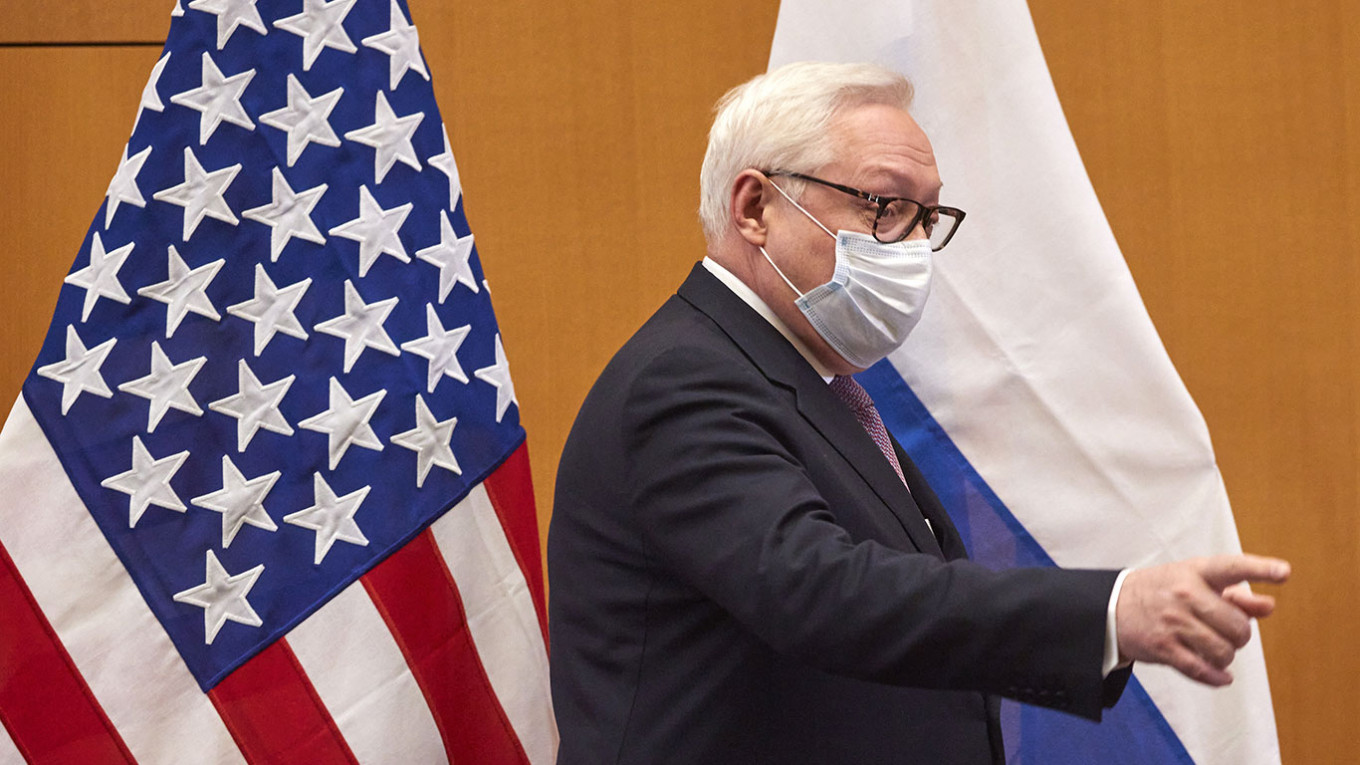Both sides noted there was no breakthrough, but vowed to continue diplomatic efforts to diffuse tensions.
Here’s what they discussed:
Invasion fears
– Russian Deputy Foreign Minister Sergei Ryabkov said he had assured his U.S. counterpart, Deputy Secretary of State Wendy Sherman, that the fears of a Russian invasion of its pro-Western neighbor Ukraine were unfounded.
– Sherman said Russia offered no proof it would not invade, nor any explanation for why it has deployed some 100,000 troops towards the Ukrainian border.
Sanctions
– Sherman threatened sanctions on key Russian financial institutions, export controls targeting key industries, NATO enhancement and more security assistance to Kyiv if Russia invades Ukraine.
– Ryabkov denounced the U.S. threats as “attempts at blackmail and intimidation.” But he added: “I don’t think the situation is hopeless.”
NATO expansion
– Ryabkov sought “ironclad, legally binding” guarantees that Ukraine as well as the ex-Soviet republic of Georgia would never join the U.S.-led military bloc, saying the issue “is an absolute imperative” to Russia.
– Sherman insisted that the demand is a “non-starter,” saying “we will not allow anyone to slam closed NATO’s open-door policy.”
Military and missiles
– Sherman offered reciprocal moves with Russia on de-escalation on missile placements and exercises.
– Ryabkov reiterated Russia’s warning of a “military response through means at our discretion” if NATO deployed U.S. offensive weapons in Europe. “That will inevitably, unavoidably damage security of the U.S. and its European allies,” the AP quoted him as saying.
– Ryabkov made clear that Russia was not interested in discussing the defunct INF Treaty, which had banned both sides from stationing short- and intermediate-range, land-based missiles in Europe, without the demands it has laid out in front of the U.S. and NATO.
What now?
– Monday’s talks in Geneva launched a week of “Strategic Security Dialogue” diplomacy between Russia and the West after Moscow’s troop movements near Ukraine triggered a Cold War-style standoff.
– A meeting of the NATO-Russia Council will take place in Brussels on Wednesday, then the permanent council of the Organization for Security and Cooperation in Europe (OSCE) will meet in Vienna on Thursday with the issue of Ukraine expected to dominate.
– The Kremlin called Monday’s talks between the United States a “positive” start to continued dialogue, but noted that “this is not a process for the sake of process… what’s important here is the result. There is nothing to say yet about the result.”
Source:themoscowtimes.com/2022/01/11
